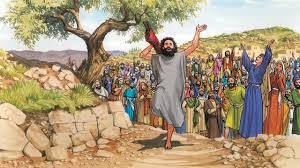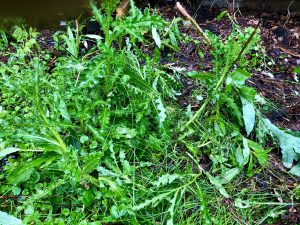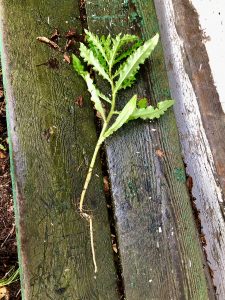HOMILY WEEK 13 04 – Year II
Faith, Forgiveness and Deeper Healing
(Amos 7:10-17; Ps 19; Mt 9:1-18)
*********************************************
Have you ever wondered what it would be like to be paralyzed?
The gospel today invites us to place our faith in Jesus and come to him for forgiveness and deeper healing.
The paralyzed man in the gospel can symbolize our wounded humanity. All of us are sinners, falling short of the persons God has created us to be. And all of us stand in need of healing of our sinfulness, that which makes us sin. Many of us are even to some extent paralyzed by feelings of guilt or shame.
It is significant that Jesus came to his home town, and that the common people there believed in him. “Seeing their faith,” he responded with forgiveness and healing. It is the scribes and the religious leaders who, in their false pride and stubborn self-will, always refused to believe in Jesus.
There is a reminder here of the importance of intercessory prayer. That prayer has its place, and carries with it the power to make a difference in peoples’ lives, as it did in the life of the paralytic. St. Monica prayed for over twenty years for the conversion of her wayward son, Augustine, and finally her prayers were heard. He not only came to believe in Jesus, received his forgiveness and healing, but also became one of the church’s greatest saints.
 Jesus surprises and shocks especially the scribes by first extending forgiveness to the paralytic. Jesus asserts he did this to show them that the Son of Man has authority on earth to forgive sins. The title Son of Man means he is the Word made flesh, divine and human.
Jesus surprises and shocks especially the scribes by first extending forgiveness to the paralytic. Jesus asserts he did this to show them that the Son of Man has authority on earth to forgive sins. The title Son of Man means he is the Word made flesh, divine and human.
The fact that Jesus then goes on to heal the paralytic reveals that he is also the long-awaited Messiah, who was to come with a two-fold mission – to redeem and to sanctify; to forgive and to heal.
That healing is important for us in our own lives. A spirituality of weeding can help us grasp what is a stake here. I love gardening and have learned to “root weed” as the best way to control weeds. If they are cut off at the surface with a hoe, leaving the roots intact, they will just grow back again. But if they are pulled out by the roots, they are gone and will not grow back again.
 Actually, root weeding this way has become a spiritual experience for me, especially when I am trying to get rid of the jungle of thistles at our Oblate cottage at Jackfish Lake. When I manage to pull out a thistle with a long root, I feel a great satisfaction – that weed will never grow back. I get a sense of how God must feel when someone genuinely repents, confesses his or her sin and seeks to make amends. That sin is forgiven, gone, no longer exists, because God assures us God will not only deal with our iniquity, but will not remember our sins (Hebrews 8:12). So when God forgives, God forgives – that sin no longer exists.
Actually, root weeding this way has become a spiritual experience for me, especially when I am trying to get rid of the jungle of thistles at our Oblate cottage at Jackfish Lake. When I manage to pull out a thistle with a long root, I feel a great satisfaction – that weed will never grow back. I get a sense of how God must feel when someone genuinely repents, confesses his or her sin and seeks to make amends. That sin is forgiven, gone, no longer exists, because God assures us God will not only deal with our iniquity, but will not remember our sins (Hebrews 8:12). So when God forgives, God forgives – that sin no longer exists.
 However, unless we also experience healing of the root of our sin (our sinfulness, that which makes us sin – our painful emotions and negative attitudes) we will just go on repeating the same sins. When we come to Jesus for healing of our sinfulness, then there is change, transformation, conversion – we will not sin that way to the same degree again. And that is the core of the Good News of Jesus Christ, something we can truly celebrate.
However, unless we also experience healing of the root of our sin (our sinfulness, that which makes us sin – our painful emotions and negative attitudes) we will just go on repeating the same sins. When we come to Jesus for healing of our sinfulness, then there is change, transformation, conversion – we will not sin that way to the same degree again. And that is the core of the Good News of Jesus Christ, something we can truly celebrate.
The townspeople in the gospel today, were filled with awe and gave glory to God who had given such power to human beings. The Eucharist we celebrate is our greatest response to this unconditional love of God.
May our celebration today strengthen our faith in Jesus as Son of Man and Messiah, help us come to him for both forgiveness and deeper healing, and then share that faith and our experience of healing with others.



